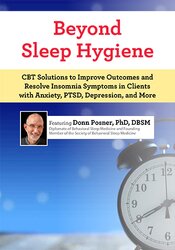Iscriviti oggi stesso a un corso online per imparare in modo flessibile e al tuo ritmo, senza orari fissi.


-
 Corso onlineChe tu sia nuovo alla terapia Internal Family Systems IFS) o che la pratichi da anni, registrati e scopri come perfezionare e personalizzare il modello per adattarlo alle esigenze specifiche dei tuoi clienti.Valore: € 1.140,66 *€275,99Che tu sia nuovo alla terapia Internal Family Systems IFS) o che la pratichi da anni, registrati e scopri come perfezionare e personalizzare il modello per adattarlo alle esigenze specifiche dei tuoi clienti.21 ottobre 2020Che tu sia nuovo alla terapia Internal Family Systems IFS) o che la pratichi da anni, registrati e scopri come perfezionare e personalizzare il modello per adattarlo alle esigenze specifiche dei tuoi clienti.Valore: € 1.140,66 *€275,99
Corso onlineChe tu sia nuovo alla terapia Internal Family Systems IFS) o che la pratichi da anni, registrati e scopri come perfezionare e personalizzare il modello per adattarlo alle esigenze specifiche dei tuoi clienti.Valore: € 1.140,66 *€275,99Che tu sia nuovo alla terapia Internal Family Systems IFS) o che la pratichi da anni, registrati e scopri come perfezionare e personalizzare il modello per adattarlo alle esigenze specifiche dei tuoi clienti.21 ottobre 2020Che tu sia nuovo alla terapia Internal Family Systems IFS) o che la pratichi da anni, registrati e scopri come perfezionare e personalizzare il modello per adattarlo alle esigenze specifiche dei tuoi clienti.Valore: € 1.140,66 *€275,99 -
 Corso onlineGabor Maté va oltre le semplici istruzioni e mostra esattamente come usa l'Indagine Compassionevole per aiutare la guarigione. Guarda come mette in pratica il suo metodo unico con più di 10 persone del pubblico.Valore: 689,89 € *€275,99Gabor Maté va oltre le semplici istruzioni e mostra esattamente come usa l'Indagine Compassionevole per aiutare la guarigione. Guarda come mette in pratica il suo metodo unico con più di 10 persone del pubblico.15 luglio 2022Gabor Maté va oltre le semplici istruzioni e mostra esattamente come usa l'Indagine Compassionevole per aiutare la guarigione. Guarda come mette in pratica il suo metodo unico con più di 10 persone del pubblico.Valore: 689,89 € *€275,99
Corso onlineGabor Maté va oltre le semplici istruzioni e mostra esattamente come usa l'Indagine Compassionevole per aiutare la guarigione. Guarda come mette in pratica il suo metodo unico con più di 10 persone del pubblico.Valore: 689,89 € *€275,99Gabor Maté va oltre le semplici istruzioni e mostra esattamente come usa l'Indagine Compassionevole per aiutare la guarigione. Guarda come mette in pratica il suo metodo unico con più di 10 persone del pubblico.15 luglio 2022Gabor Maté va oltre le semplici istruzioni e mostra esattamente come usa l'Indagine Compassionevole per aiutare la guarigione. Guarda come mette in pratica il suo metodo unico con più di 10 persone del pubblico.Valore: 689,89 € *€275,99 -
Diventa un affiliato
Argomenti di tendenza:












